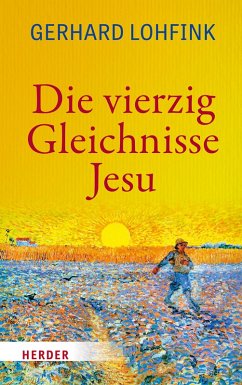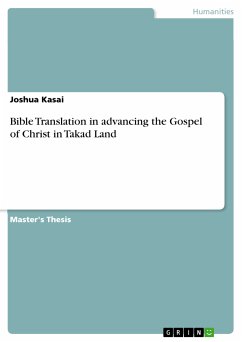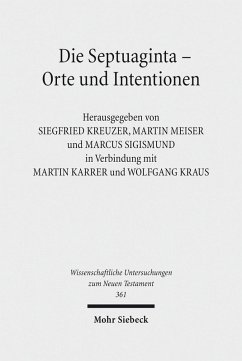![[Re]Gained in Translation I: Bibles, Theologies, and the Politics of Empowerment (eBook, PDF) [Re]Gained in Translation I: Bibles, Theologies, and the Politics of Empowerment (eBook, PDF)](https://bilder.buecher.de/produkte/65/65267/65267148z.jpg)
[Re]Gained in Translation I: Bibles, Theologies, and the Politics of Empowerment (eBook, PDF)
Versandkostenfrei!
Sofort per Download lieferbar
90,00 €
inkl. MwSt.
Weitere Ausgaben:

PAYBACK Punkte
0 °P sammeln!
Translations of the Bible take place in the midst of tension between politics, ideology and power. With the theological authority of the book as God's Word, not focusing on the process of translating is stating the obvious. Inclinations, fluency and zeitgeist play as serious a role as translators' person, faith and worldview, as do their vocabulary, poetics and linguistic capacity. History has seen countless retranslations of the Bible. What are the considerations according to which Biblical retranslations are being produced in current, 21st century, contexts? From retranslations of the Hebrew...
Translations of the Bible take place in the midst of tension between politics, ideology and power. With the theological authority of the book as God's Word, not focusing on the process of translating is stating the obvious. Inclinations, fluency and zeitgeist play as serious a role as translators' person, faith and worldview, as do their vocabulary, poetics and linguistic capacity. History has seen countless retranslations of the Bible. What are the considerations according to which Biblical retranslations are being produced in current, 21st century, contexts? From retranslations of the Hebrew Bible to those of the Old and New Testaments, to mutual influences of Christian and Jewish translational traditions - the papers collected here all deal with the question of what is to be [re]gained with the production of a new translation where, at times, many a previous one has already existed. Sabine Dievenkorn, PhD in Theology (Universität Hamburg, Germany), is Professor and Director of the Academia de Teología in Santiago de Chile. An ordained reverend of the Lutheran Church, she serves as the ESWTR representative in Israel and Palestine. Shaul Levin, PhD in Translation Studies (Tel Aviv University, Israel), co-directed the Diploma Studies in Translation and Revision at his alma mater. An independent scholar and literary translator, he has eighty translated titles published to date.
Dieser Download kann aus rechtlichen Gründen nur mit Rechnungsadresse in A, B, BG, CY, CZ, D, DK, EW, E, FIN, F, GR, HR, H, IRL, I, LT, L, LR, M, NL, PL, P, R, S, SLO, SK ausgeliefert werden.


![[Re]Gained in Translation I: Bibles,... - Bild 1](https://bilder.buecher.de/produkte/65/65267/65267148k.jpg)

![[Re]Gained in Translation II: Bibles, Histories, and Struggles for Identity (eBook, PDF) Cover [Re]Gained in Translation II: Bibles, Histories, and Struggles for Identity (eBook, PDF)](https://bilder.buecher.de/produkte/70/70128/70128345n.jpg)
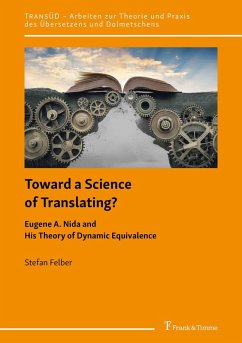
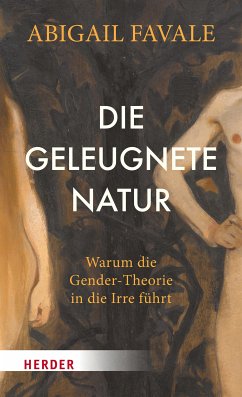
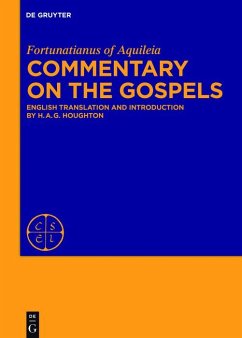


![[Re]Gained in Translation, Volume 1-2 (eBook, PDF) Cover [Re]Gained in Translation, Volume 1-2 (eBook, PDF)](https://bilder.buecher.de/produkte/70/70320/70320341n.jpg)
